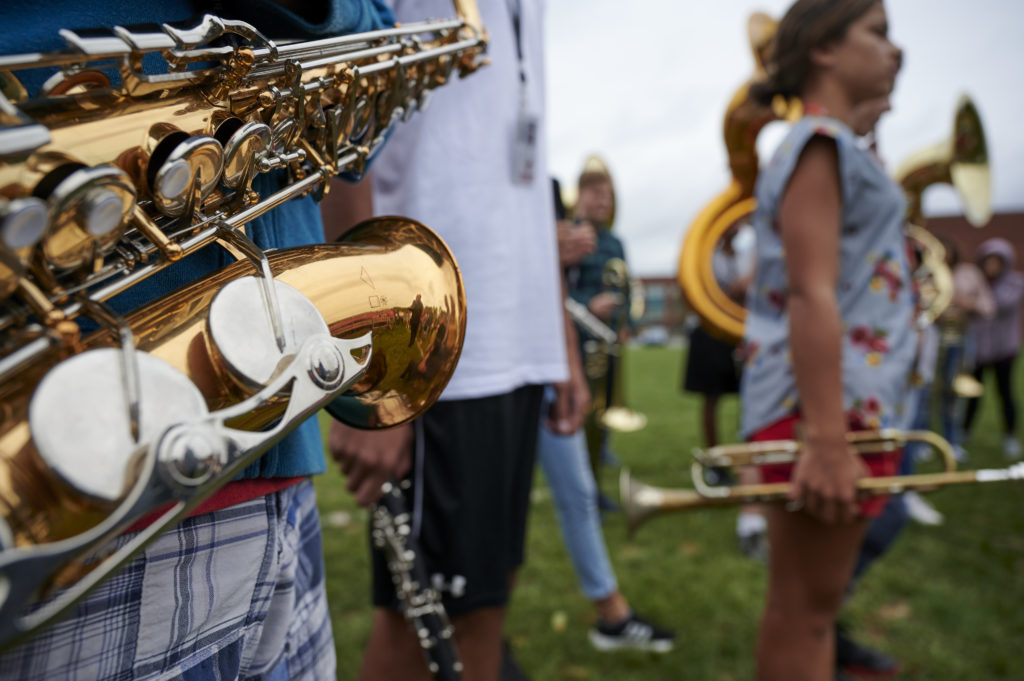SDoL Music Events
Where it all begins
The elementary music school classrooms
 The Elementary Music Classrooms introduce our children to the elements of music, the four vocabularies of musical language (listening, speaking, reading, and writing), and the four focus areas (Active Music Making, Music Creating, Musical Literacy, and Musical Understanding and Responsive Music Listening. In music, like when starting to learn a traditional language as a young child, students learn to listen and reproduce what they hear. They begin to understand what they are reproducing and are able to begin to recognize and label the sounds (for example: rhythm, pitch, timbre, expressive elements). Students use movement to demonstrate what they hear (for example: marching or ways of moving to the beat, moving through space, showing pitch or phrasing with their hands or arms). Students learn the graphical representations of what they are learning (ways of notating music) and begin to read standard music notation. Students create variations of songs they know, put musical patterns in new contexts, and create their own songs (improvising and composing).
The Elementary Music Classrooms introduce our children to the elements of music, the four vocabularies of musical language (listening, speaking, reading, and writing), and the four focus areas (Active Music Making, Music Creating, Musical Literacy, and Musical Understanding and Responsive Music Listening. In music, like when starting to learn a traditional language as a young child, students learn to listen and reproduce what they hear. They begin to understand what they are reproducing and are able to begin to recognize and label the sounds (for example: rhythm, pitch, timbre, expressive elements). Students use movement to demonstrate what they hear (for example: marching or ways of moving to the beat, moving through space, showing pitch or phrasing with their hands or arms). Students learn the graphical representations of what they are learning (ways of notating music) and begin to read standard music notation. Students create variations of songs they know, put musical patterns in new contexts, and create their own songs (improvising and composing).
Students learn to listen to and sing songs from a variety of cultures, times, and places. They learn to identify instruments and learn to play a variety of non-pitched and pitched instruments. As they get older, students are able to join the band, orchestra, and chorus in their elementary schools.
Maturing Musicians
The middle school music classroom
Our middle school musicians learn to go deeper with the elements of music, the four vocabularies of musical language (listening, speaking, reading, and writing), and the four focus areas (Active Music Making, Music Creating, Musical Literacy, and Musical Understanding and Responsive Music Listening. Our middle school teachers are transforming the learning and creating processes in music as they prepare for IB Middle Years implementation in the music classrooms. Students will be engaged in more intra-disciplinary learning and creating more real-world projects that have meaning for them. The creative process is explored frequently as students learn to become better at self-reflection, leading to more independence in the teaching and learning process.
Students continue to learn to listen to and sing songs from a variety of cultures, times, and places. They learn to identify a wide array of instruments and learn to play instruments within general music classes to help demonstrate their learning. Students continue to develop the specialized skills needed to successfully perform with their school’s band, orchestra, and chorus.

Developing musicianship and preparing for future careers in music
The high school music classrooms
High school music students take classes for a variety of reasons. Whether it is for an arts credit for graduation, to help develop their love of music as a future hobby, or to prepare for a music major in college or a future job as a musician, the J. P. McCaskey High School Campus has the courses to enable students to learn and grow in the arts no matter the motivation. Course offerings include: Band, Color Guard, Orchestra, Vocal Ensemble, Gospel Choir, Chamber Choir, Mixed Chorus, Piano Lab, Guitar Lab, Music Technology, AP Music Theory, IB Music Standard Level, and IB Music Higher Level.
Students graduating from the McCaskey Campus have been accepted at a variety of colleges and universities with well-respected music and music education program and several alumni have recently become music teachers in area schools. McCaskey musicians participate in LLMEA County, PMEA District, PMEA Region, and PMEA State festival ensembles and, at times, also perform in All-Eastern or National ensembles.
No matter the course, the music teachers are focused on helping students become the best musicians they can be including learning and refining skills in performing, creating, critical-thinking, communicating, collaborating, and problem-solving.




 We are proud of our district and community support of our music program, which has been recognized as one of the Best Communities for Music Education by the NAMM Foundation for 10 years in a row (2011-2020).
We are proud of our district and community support of our music program, which has been recognized as one of the Best Communities for Music Education by the NAMM Foundation for 10 years in a row (2011-2020).